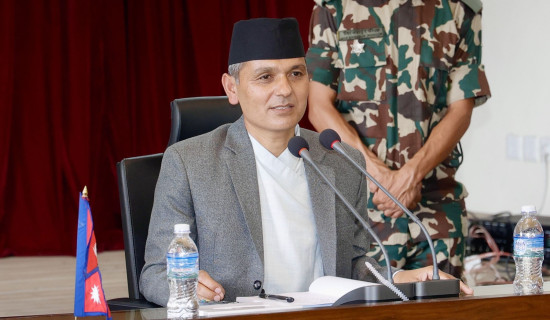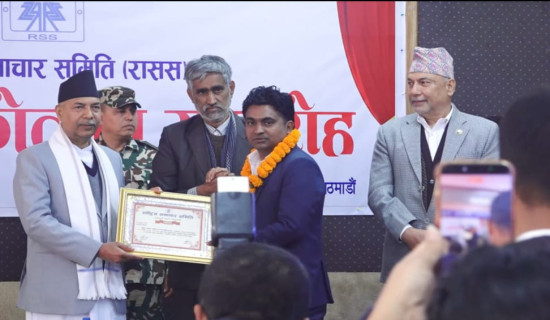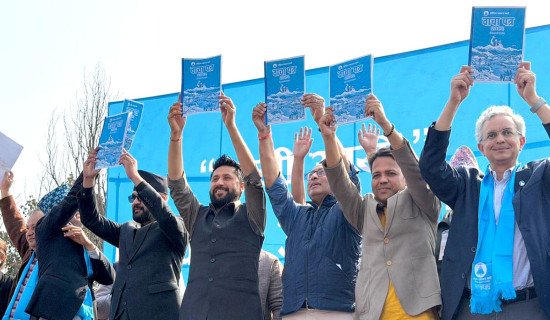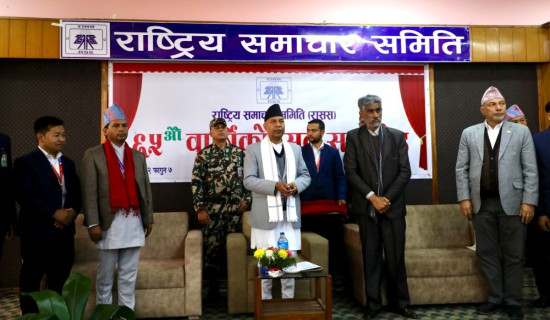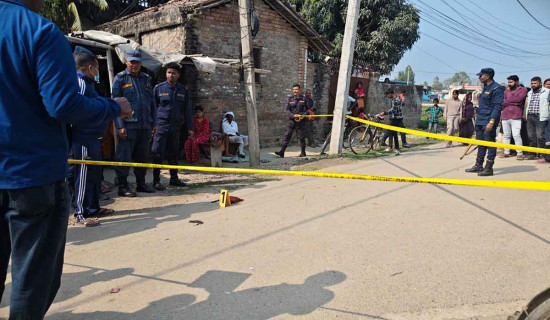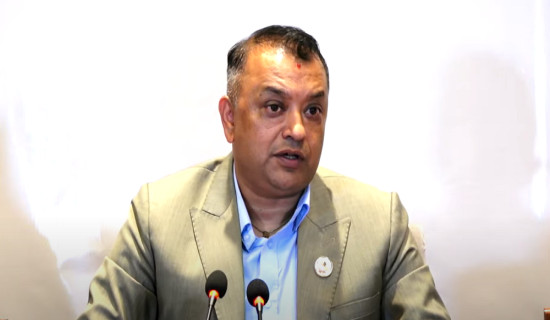- Friday, 20 February 2026
Create South Asian Union For Prosperity
South Asia has about 25 per cent of the world’s population. There are vast landscapes and natural resources shared in this region, including the highest peaks on earth and some of the driest and low lands. The region is home to some of the most beautiful flora and fauna on earth, and some of them are getting extinct or moving towards being extinct due to the adverse impact of climate change in the region. This region also has some of the oldest civilisations, cultures, religions, traditions, and rituals that have been carried on for centuries by people from one generation to another and shared throughout the region. South Asia, with its ancient civilisations and interconnected histories, boasts a shared heritage that binds the people across borders.
From the great Indus Valley's civilisation to the teachings of Buddha and the epics of the Mahabharata and Ramayana, our shared history is a testament to the interconnectedness of our cultures. Recognising and celebrating this common heritage can lay the foundation for a stronger sense of unity among the South Asian people. From one vast land of the Indian sub-continent, we now have several countries who were always independent or got created after the splitting of India when the British left them. Unfortunately, instead of being a strong power with natural and human resources which could be abundant for the people of the region, South Asia is now embroiled in wrath, poverty, and difficulty that imperil the survival for the most while a small percentage enjoy the wealth and physical and materialistic comforts of today’s world.
Stringent laws
Where the world's largest and oldest democracy is prevalent, now the name of democracy is only limited to the fact that in all of the eight South Asian countries including Afghanistan, Bhutan, Nepal, India, Pakistan, Bangladesh, Sri Lanka, and the Maldives elections are held periodically to elect the people’s representatives. In most of these countries there have been records of elections being rigged. Many of these countries have showcased corruption and autocratic regime where the people’s voices are subdued, and now there is an atmosphere where both the freedom of press and right to expression are shrinking day by day. The governments in all of these eight countries have or are in the process of promulgating digital media monitoring laws, rules and regulations which are very stringent and can control the right of freedom of press and expression.
The international bodies monitoring human rights and the Declaration of Human Rights itself seem to be a failure especially in controlling the atrocity of the Taliban in Afghanistan who are stripping girls and women of all basic fundamental rights that the declaration ensures. Therefore, there is now a need for the people of South Asia to unite to utilise their resources jointly without discrimination and to ensure that all South Asians get to live a dignified life. During several sessions in the just-concluded World Social Forum 2024 held in Kathmandu from 15th -19th February a united voice was raised by farmers, academics, scientists, health workers, activists, and the people in general that a road map to unite the South Asian region as a union could probably help in making the lives of people in this region easier.
The impact of climate change is seen in every country of the region by periodically getting affected by flood or dry seasons that have affected the production of food and loss of life, infrastructure and, mostly the hope for a better future. Mostly of our countries do not contribute to the negative impact of carbon emission but still bear the brunt. A session during WSF on South Asian People's Road Map for South Asian Union organised by Diep Saeeda, South Asian People's Friendship, Pakistan released a statement saying that although SAARC has been dysfunctional, it’s important to retain SAARC to realise our necessity of making South Asian Union a reality. Pakistan and India should immediately come to a negotiating table to resolve their conflicts to strengthen peace and prosperity in South Asia. All South Asian countries should have soft borders to facilitate the people to travel and trade easily. Visa should be exempted for divided families living across the borders.
Sharing natural resources
The necessity of a South Asian Union, irrespective of whether, the political dispensations and governments desire or not, is becoming urgent with the deepening climate crisis, it has become a necessity that we collectively combat it as a region. It is impossible to think that we can resolve the crisis in each of our countries when we are one region sharing the same natural resources. The road map to a South Asian Union has to be people to people and to preserve the earth. The no-man's land between Indian and Pakistani borders should become a meeting place for people from both countries rather than the fearful militarised show of strength. Every South Asian citizen holding a valid passport should be allowed to enter any other South Asian Country.
Similarly, a session on Civil Liberties in South Asia organised by Kanita Srivastava, People’s Union for Civil Liberties, India, delved on the stringent rules and regulations enacted to curb the freedom of press and expression of free speech. This platform unequivocally stated that in all the South Asian nations, democracies are being eroded and people's basic freedoms like that of dissent, association, expression and movement are under threat, and media and judicial independence are being compromised. The group resolved to make accountable their governments and, at no cost allow the breakdown of the rule of law and attack on people’s rights and build people’s movements to protect our human rights collectively as a union.
(Sharma is a senior journalist and women rights advocate namrata1964@yahoo.com Twitter handle: @NamrataSharmaP)











